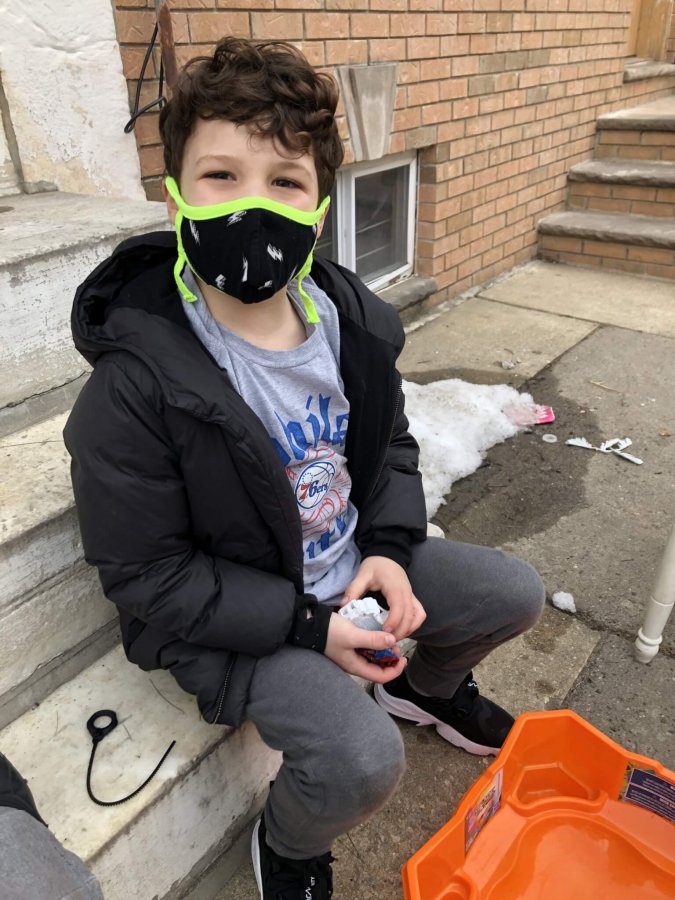
We report to you on last week from the beginning of a brand new curriculum unit at Makom Community! To kick off this unit, we’ll unpack the story in Megillat Esther (the Book of Esther). We’ll notice the ways that challenging experiences that we and the characters in text face are temporary, but the strength we take from them impacts our lives again and again.
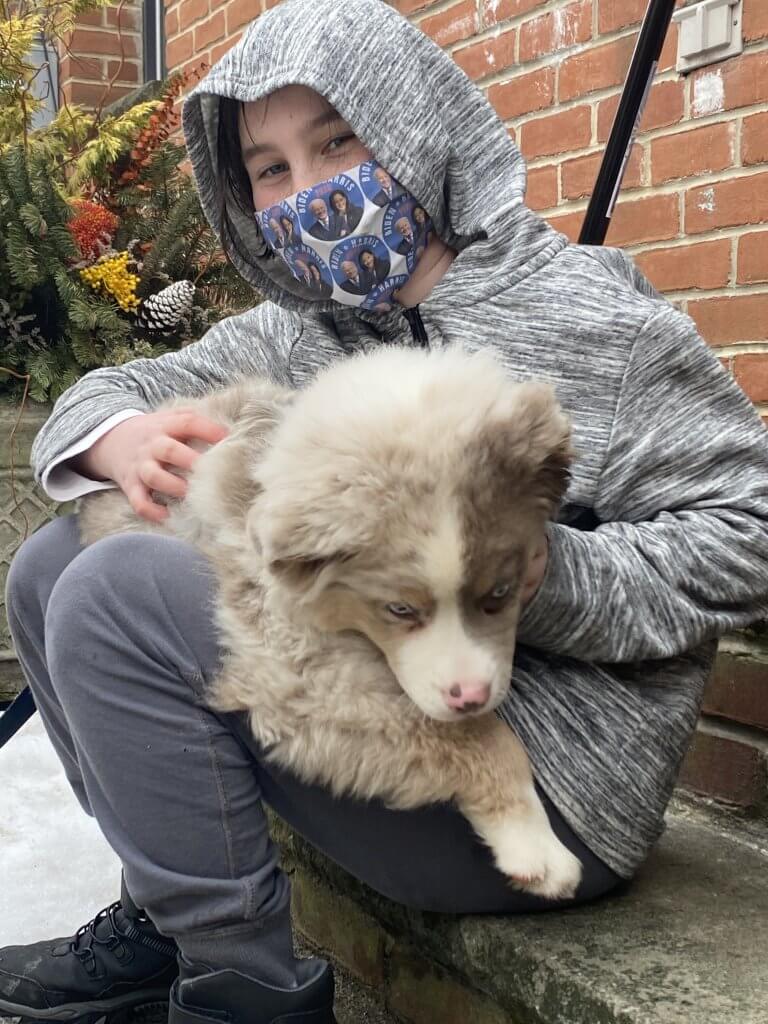
Before we even got into the text, we asked the Nitzanim (3rd and 4th graders) what is a challenge?
- Something that’s hard for you and you have to work hard to get it.
- A test at school.
- A problem in life.
- Me and my brother fighting. We’re still working on that one.
- My brother has to work hard to be an official big kid.
- Finding a needle in a haystack. Sometimes when you’re facing a challenge that’s what it feels like.
- Something that’s hard and tricky to figure out.
- Something that’s not easy.
What is resilience?
- How smart someone is.
- Even when something is hard you get through it. You won’t stop trying.
- If someone is hurting you, you have to have resilience and be patient to get through it.
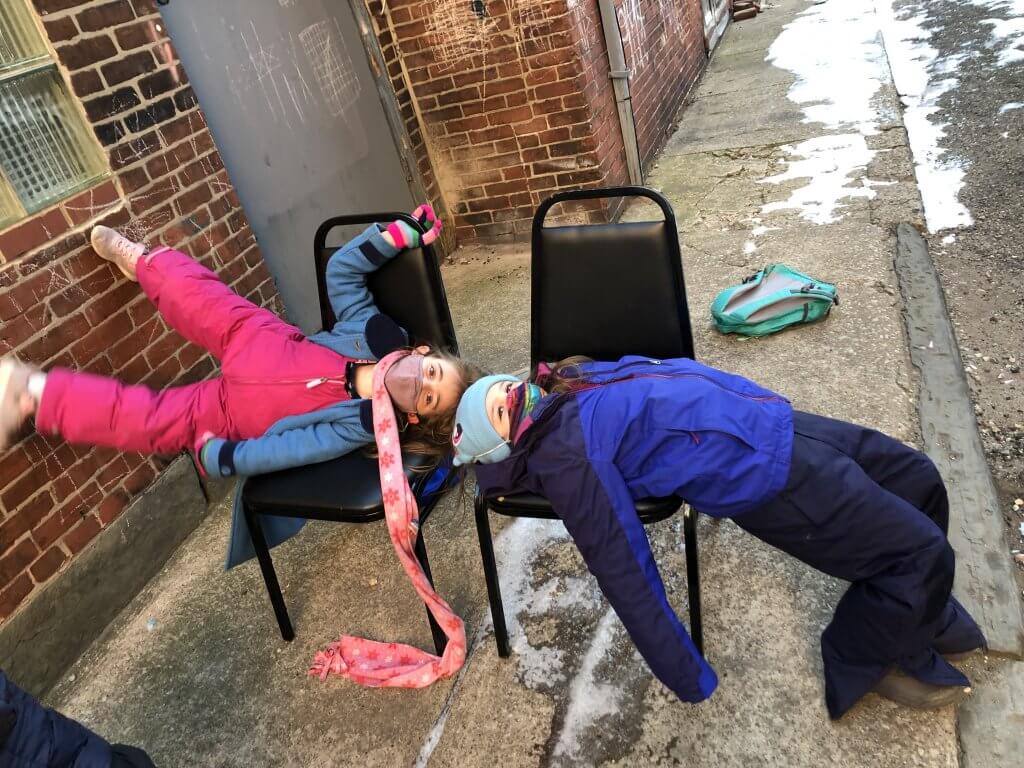
Then we jumped into the first two chapters of this new story. King Achashverosh tells his wife Queen Vashti to come to his party so he can show her off to the people there. Vashti refuses to go. Achashverosh gets very mad, and, upon the suggestion of his advisors, decides to get rid of Vashti and find a new queen instead. He ends up choosing a young woman named Esther. She’s cousins with her adoptive father Mordechai, and they’re Jewish. Even when Esther wins over Achashverosh and gets chosen to be the new queen, Mordechai tells her to keep her Jewish identity and relationship to him a secret.
Based on what you know so far about the megillah story, how might we see the themes of challenge and resilience come through?
- I see King Achashverosh being resilient and listening to the sages.
- We see challenge where the king says that all the Jews are going to die, and the Jews have to get out of it somehow.
- Queen Vashti shows resilience when she says no to the king.
- Mordechai telling Queen Esther to not tell anyone she’s Jewish is showing resilience and smarts.
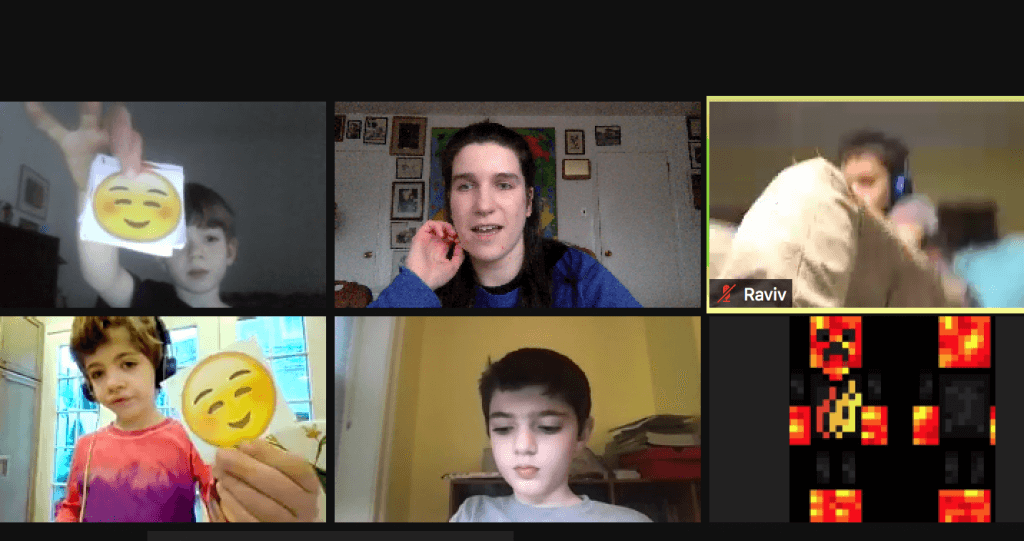
Because Vashti is a queen, the king was worried that her choices would influence the choices of the other people (women in particular) in the kingdom. He punished her in order to maintain his power and authority. The Garinim (preK and K kiddos), Shorashim (1st and 2nd graders), and Nitzanim all brainstormed times when they were in situations where they had power over someone else or when the other person had power over them.
- When I’m the oldest at some sort of place cause a lot of younger kids would want to do what I did so I should be a not bad inspiration cause that can affect their life.
- I can say this is not a good idea.
- At Greenfield there was garbage on the floor and I picked it up and threw it in the trash this was a way I was a leader.
- When I’m helping someone cross the street and there’s no adults there. It’s my responsibility to keep them safe so I have more power.
- Teachers have more power than I do in class, so everyone is age-ist and I hate them.
- Right now my brother has a lot more power than I do because he has no school starting at 10:45. I feel bad because he gets bored, but he’s kinda lucky. I doubt he likes it because he likes his teacher.
- When my sister was a baby, she got more attention so she had more power.
- When I’m captain of a team I have more power. I feel guilty when someone else wants to be captain, but I also feel excited and worried about whether it’ll go well. But also why did they pick me?
- When I have more power I feel worried about the other person and also a little embarrassed.
- My parents have power over me and they tell me what to do and I have to listen. I don’t always get to make a choice. Sometimes it’s fine and sometimes I don’t really like it.
- Sometimes people have more privilege because they’re young and that’s not fair.
- When I’m reading a book to my stuffies and guarding the kingdom that the stuffies live in, I feel like I have power and responsibility.
- On my birthday I get to pick what’s for dinner but if someone doesn’t like that food I let them pick something else.
- When I’m the host of a Zoom meeting, I can mute them, kick them out, rename them, or put them in the waiting room. It doesn’t feel that good because it might make the other person feel bad.
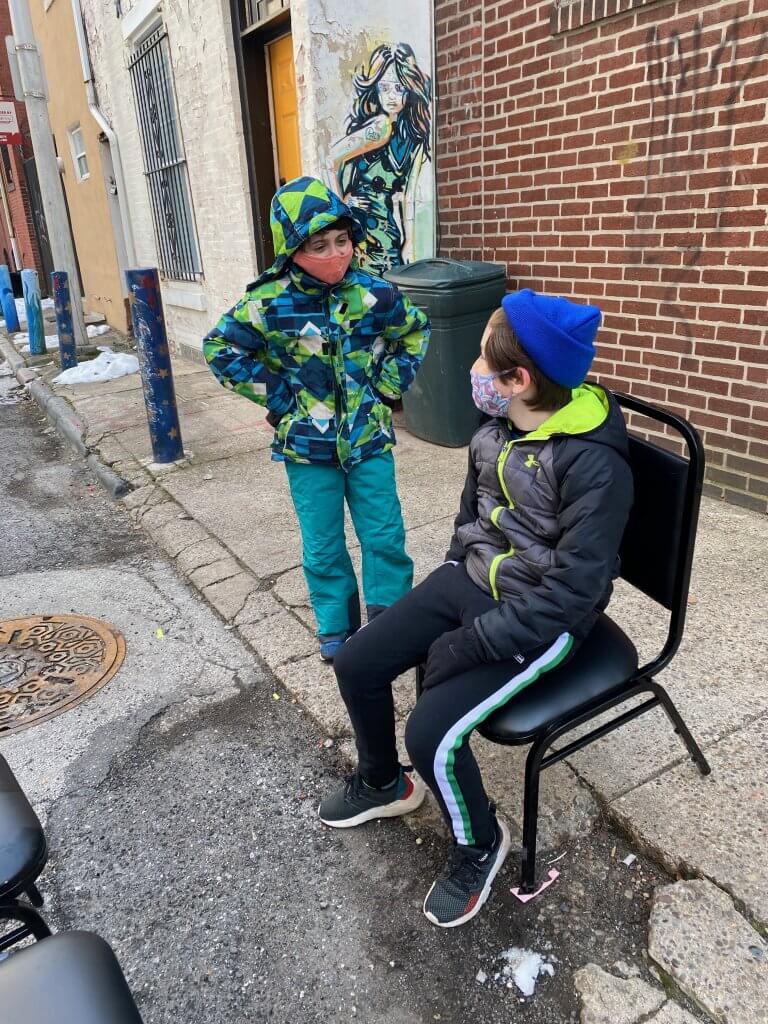
The power imbalance between Vashti and Achashverosh made her refusal of his invitation a really brave choice. Why did Vashti refuse to go to the king’s party? How might she have felt saying no?
- Sad because I think she did want to go to the party, but she didn’t like being ordered.
- Scared because maybe he would do something mean to her.
- I think she’s feeling confused, wondering should I do this or not.
- Maybe she was too afraid to go be in front of a lot of people.
- She thought that showing herself off to all those people would be disgusting.
- Angry and scared – angry that the king wanted her to show off, scared she knew if she disobeyed the king then she would get in trouble.
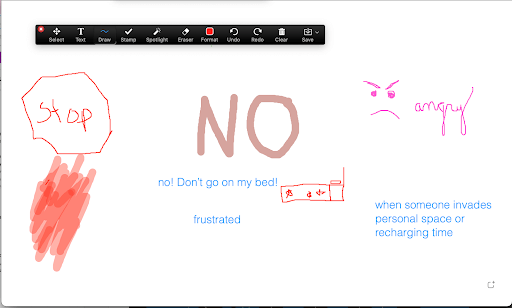
The Shorashim and Garinim reflected on times we’ve noticed people saying no or when people should say no:
- When somebody hurts you.
- If that the answer to a question. Like if somehow asks if you want to play baseball and you don’t want to, the answer is no.
- To your pet trying to scratch you.
- My little brother talking back to his teacher said “no”.
It can be hard to say no if we’re worried about disappointing the other person, or if we sort of want the thing but not on their terms, or if we’re worried that we’ll get punished for our answer like Vashti was. We reflected on the ways we can say “no” in different situations to take care of ourselves and also make space for other people to say “no” to us if they need to, especially when we are in positions of authority or power. We’re looking forward to integrating these ideas and more into our growing understanding of challenge and resilience.
